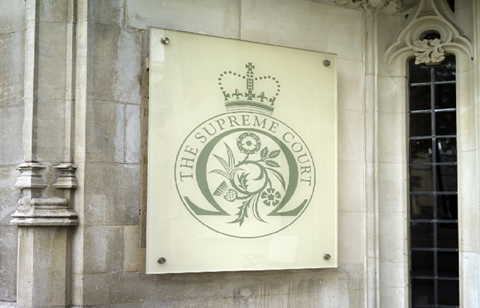
The Supreme Court has ruled that, in Pimlico Plumbers and Charlie Mullins v Gary Smith, Smith qualifies as a worker, dismissing an appeal put forward by Pimlico Plumbers and its CEO and founder, Charlie Mullins.
Between August 2005 and April 2011, Smith worked for Pimlico Plumbers as a plumbing and heating engineer. In August 2011, Smith issued proceedings before the employment tribunal, alleging unfair dismissal, unlawful deduction from his wages, unpaid statutory annual leave and discrimination on the basis of disability.
The tribunal decided that Smith had not been an employee, and therefore could not claim unfair dismissal, but that he could be classed as a 'worker' under the Employment Rights Act 1996 and Working Time Regulations 1998, and had been in employment for the purposes of the Equality Act 2010.
Pimlico Plumbers and Mullins appealed this decision in the Court of Appeal, and when unsuccessful appealed to the Supreme Court.
The Supreme Court judgment, which was handed down today (13 June 2018), confirms that Smith is to be classed as a worker, as per the decision of the employment tribunal.
The Court noted that the tribunal was legitimate in its finding that there was an umbrella contract between the parties. Smith was party to certain freedoms, such as accepting outside work, but the organisation held tight control over administrative aspects of his work, his attire, pay, and his working activities following termination.
Tim Goodwin, associate at Winckworth Sherwood, explained: “As a business, you cannot expect to exercise complete control over your staff [and] at the same time deny that they are workers, or even employees. In this case, the individual had to wear a uniform, work a 40-hour week, was subject to disciplinary rules and was limited in who he could work for after he had left. This gave Pimlico Plumbers enormous control over his activities. But it also significantly undermined Pimlico Plumbers' key contention that he was self-employed."
The judgment concludes that Pimlico Plumbers cannot be regarded as a client or customer of Smith, and that his claims can therefore proceed to be heard.
Mullins responded: “The shame of all this is that it is generally accepted that current employment law is not fit for purpose, and needs to be changed. But when it's put to the test in our highest court there isn't even the slightest suggestion that there is a problem that needs to be addressed.
“This was a poor decision that will potentially leave thousands of companies, employing millions of contractors, wondering if one day soon they will get nasty surprise from a former contractor demanding more money, despite having been paid in full years ago. It can only lead to a tsunami of claims.”
Michelle Morgan, employment solicitor and senior associate at Gardner Leader solicitors, added: “The Supreme Court’s ruling will have big ramifications for other high-profile employment cases that are coming through the courts.
"Businesses will need to alter their models to minimise the risk of worker status being invoked and the rights that accompany such status. The decision is an important one as on the one hand there is the need to protect the rights of those who work in the gig economy, [while] preserving the ethos of such a business model, with flexibility being at the heart of it.”
Susannah Kintish, employment partner at law firm Mishcon de Reya, which was instructed by the appellants, said: "This judgment does not lay down any new principles of law around worker status. Instead, all eyes will be on the government as businesses await legislation on how to categorise their workforce, something which could still be a matter of years away. In the meantime, the gig economy continues to evolve and existing employment law is rendered increasingly unfit for purpose."











